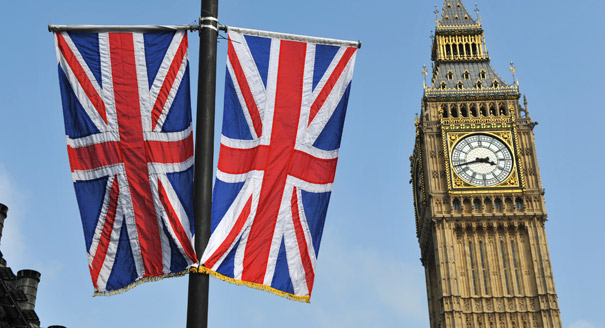David Cameron has presented the terms under which Britain could remain in the European Union. This is good news. Every member state finally knows where the UK prime minister now stands. If he is to be believed, Cameron wants Britain inside, not outside the EU.
Cameron’s speech, delivered in London on November 10 at Chatham House, sets out four conditions that will form the basis of his negotiations with Donald Tusk, the president of the European Council.
It is understandable why Cameron wants “fairness” between countries that are inside the eurozone and those that are not, such as Britain. He’s afraid of Britain being sidelined. He wants one EU member state’s voice to have the same weight as any other. He also wants assurances that countries outside the eurozone should “never bear the cost for operations to suppose the Euro as a currency.”
That’s all very well. But it does bring up the issue of solidarity, a word that Germany has discovered has little substance when it comes to dealing with the refugee crisis. What if a non-eurozone member state’s banking system collapses? Does the country turn to the International Monetary Fund for support while the EU turns a blind eye to the fallout it could have for other EU members?
Non-eurozone countries such as Poland could welcome this British demand. But the big and most important ones, France and Germany, do not want their hands tied if they want to move toward a two-tiered Europe, something that has long been in the minds of Germany—and long feared by Britain.
Moreover, the fallout from the euro crisis is far from over. It leaves unresolved the issue of whether the EU wants a fiscal union and other forms of closer economic integration.
And on this issue—an ever-closer union—Cameron will face the most opposition from his EU counterparts. An ever-closer union has always been one of the long-term goals of the EU. For the project’s founding fathers and the staunchest supporters of the EU, the idea of a union without closer integration was and is a contradiction in terms.
Several member states want to protect this political and philosophical principle that has guided the EU over the past half century. The EU’s four principles of the free movement of goods, capital, services, and people have been part of this integration. There was also a belief that the EU wouldn’t stop there.
The commitment to a goal of further integration has, however, weakened. Euroskeptic and populist parties campaign harder and harder to protect and strengthen the sovereign rights of their countries against what they see as the EU’s encroachment on their independence and the EU’s lack of democratic legitimacy.
Cameron is right to argue for more democratic legitimacy of the EU institutions. But to categorically rule out a closer union is to shut the door on the EU to advance into a genuine foreign and security player. Even Cameron admitted that “membership of the European Union…is about our national security as well as our economic security.”
Britain’s persistent opposition to more integration shows the fundamental difference between the UK and most of continental Europe. Britain perceives the EU in a practical way, not in an emotional way. “Head, not heart. I know some of our European partners may find that disappointing about Britain. But that is who we are,” Cameron said.
This difference cannot be underestimated. The EU’s origins were based on the emotional necessity for securing peace and security on what was then a wrecked postwar Europe.
The EU’s very foundations were based on the highly emotional path towards rapprochement between France and Germany so as to prevent future wars. The union was built to sew Europe together.
Each enlargement of the EU, from admitting Spain, Portugal, and Greece to expanding eastward to Central Europe and the Baltic States, has been underpinned by this emotional commitment, this yearning to join the EU because of what it represented: a united, safe, and secure Europe. It was also assumed that over time each enlargement of the EU would by necessity lead to more integration.
Britain saw the opposite. More enlargement of the EU would weaken the drive toward integration.
An emotional attachment to the EU is not enough for the bloc to cope with globalization and to cope with a refugee and migration crisis that has already put paid to any notion of solidarity among the EU member states.
These crises are threatening the principles of the EU and indeed the future existence of the EU as a bloc capable of working together to cope with such challenges. Cameron’s rejection of an ever-closer union ignores the inexorable logic of what the EU could become before Cameron’s demands become irrelevant.







.png)


